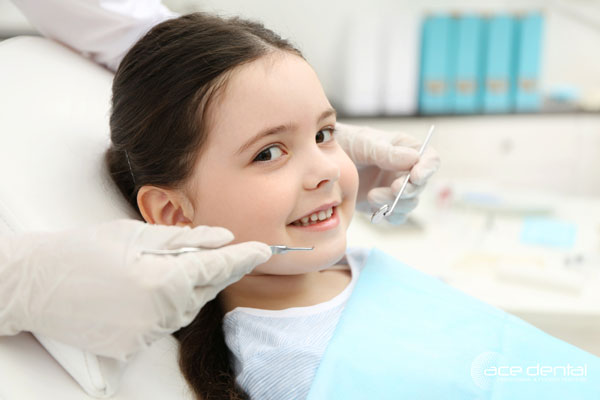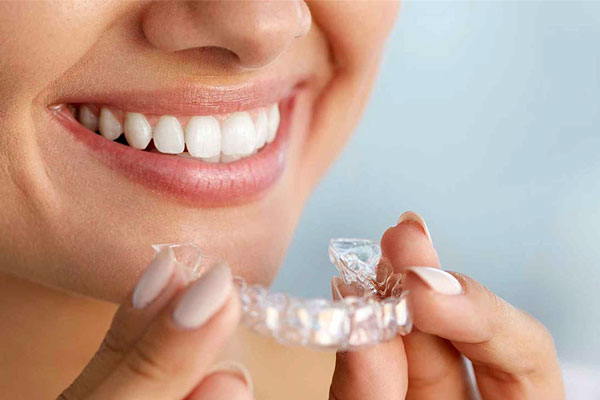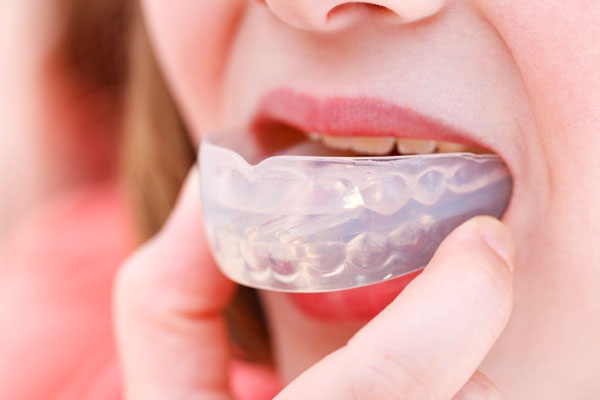
Dental Examinations/Scale & Cleans
At Ace dental we are all about prevention which is why we recommend a regular check-up and scale and clean every six months.
Much of your routine dental check-up will be spent on a thorough examination of your whole mouth, focusing on your teeth, gums and signs of any oral diseases. The objective of this is to identify changes or the onset of oral health problems as early as possible.
A thorough scale and clean of your teeth either with your Dentist or a hygienist goes hand-in- hand with regular dental check-ups.
An ultrasonic dental instrument is used to gently remove tartar that builds up on your teeth. After this, we carefully polish with a rubber brush that gently rotates to remove any further plaque and stains.
Dental radiographs are an important diagnostic tool and these should be taken every two years so the Dentist can check in between the teeth where we cannot see.
Regular check-ups can enable us to detect and treat any problems such as decay or gum disease at an early stage and therefore reduce the need for complex treatment.
Maintenance tips
- Brush teeth twice a day
- Floss your teeth once a day
- Replace your toothbrush every three months
- Have regular check-ups and professional cleaning every six months
- Consume tap water as it contains fluoride for added protection
- Limit sweet and acidic drinks including juice, cordial, sport drinks and flavoured milk
- Limit sweet and sticky foods and have reasonable intervals between meals

Custom-fitted Nightguards for grinding
Bruxism is the clenching together of teeth causing pressure on the muscles, tissues and surrounding areas of the jaw.
Symptoms referred to as ‘TMJ’ range from jaw joint disorders, headaches, neck pain, jaw pain, tense muscles and excessive wear on teeth. Bruxism can also cause damage to the temporomandibular joint (the hinge that connects the lower jaw to the upper jaw).
Stress reduction and anxiety management are methods used to treat bruxism and reduce the symptoms however, a dental night guard is the most commonly used treatment.
If you require any further information on Bruxism, we have brochures that outline the signs and symptoms that can be used as a helpful guideline for any patient that suffers from clenching or grinding.
A night guard or retainer can be fitted by our Dentist and is an inexpensive method to relieve symptoms and protect your teeth and jaws from damaging effects. When properly made, it can help reduce clenching, grinding and TMJ problems by helping to relax the muscles in the jaw.
At your first appointment we take an impression (mould) using an alginate material of your upper or lower teeth. These moulds are then made into your custom fitted nightguard. At your second appointment (one week later) we show you how to insert and remove the nightguard, make any adjustments as needed and give you home care instructions.

Mouthguards
A mouthguard is a protective device for the mouth that covers the teeth and gums to prevent and reduce injury to the teeth. A mouthguard is most often used to prevent injury in contact sports.
At your first appointment we take an impression (mould) in an alginate material of your upper and lower teeth. These moulds are then sent away to a laboratory where they make your mouthguard. You also can choose your favourite colour or team/favourite colours. One week later your mouthguard is available for collection from surgery.
